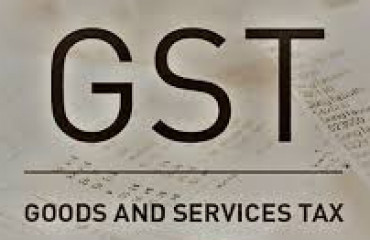
Inelastic demand is the dream of every authority that levies indirect taxes. If people do not buy less of something as its price goes up, it makes for easy tax pickings. Essentials tend to display such inflexibility, which explains why fuel is often a prime target for an overload of slap-ons, as in India.
Inelastic demand is the dream of every authority that levies indirect taxes. If people do not buy less of something as its price goes up, it makes for easy tax pickings. Essentials tend to display such inflexibility, which explains why fuel is often a prime target for an overload of slap-ons, as in India. This is also why an eminent call for relief cannot be shrugged off as just another 'spare us' plea. Our latest nudge on energy taxation is from Bibek Debroy, chair of the Prime Minister's economic advisory council, who has called attention to the twin benefits at this juncture of drawing hydrocarbons into our GST framework. Their rescue from a jumble of other levies would not just make up for a glaring sectoral exception that weakened this tax reform at its very onset, it would also reduce retail bills and business input costs, thus easing some of the inflationary pressure of this year's oil shock. "Therefore, the sooner you bring in petroleum and related products into GST, the better it is," said Debroy in an interview to Mint, "I personally believe everything should be in GST." While crude oil, petrol, diesel, jet fuel, etc, easily top our list of overtaxed items, many other revenue spinners were kept out as well. For all the hype around it, we began with a faulty GST regime. Unless we start fixing its problems, it will not be able to meet its reformist potential.
With Centre-state relations so fraught, that may seem like an agenda in need of a reality check. As our apex court recently clarified, states retain their broad autonomy on taxes and the GST Council can't impose its decisions on them. This was so all along. States always had a voice, by design, and it was the spirit of cooperative federalism that powered the consensual approach that let us push for a unified market under a common GST regime. It may also explain why its adoption five years ago was so half-baked; the prospect of ceding coffer- fillers like liquor and fuel to standard rates acted as a consensus killer. If their chance of being rolled into GST appears even dimmer today, much of the blame must go to the hash made of federal fairness by the Centre's fuel squeeze for tax mop-ups that were not shared properly. Global crude prices had halved from their 2013-14 highs by 2015-16, which let New Delhi hike excise duties on oil products without facing any yelps. States did likewise with their levies, but the Centre got the bulk of this bonanza; despite a few tax snips along the way, its oil sector intake expanded from ₹1 trillion in 2014-15 to above ₹3.7 trillion last year. As volumes swelled, a huge chunk of its gains were via hikes in surcharge and cess that it kept to itself. This not only set a bad example on tax moderation, it also drew state-level distrust.
Yet, an all-inclusive GST need not be a lost cause. The Centre has shown signs of giving states a fairer deal. Moreover, what's good for our economy must set the tone for GST. We should focus on its appeal as a concept from a private viewpoint. Apart from input credits offering an escape from old tax cascades that inflate costs and deter specialization, its value lies in the simplicity it affords. As an ideal case, picture a single rate that is moderate, stable and applicable to everything. Stripped of variability, it would block off lobbyists, brook no market distortion and help attract investment. To be sure, one rate may not be feasible, but full coverage and stability might be within reach.
